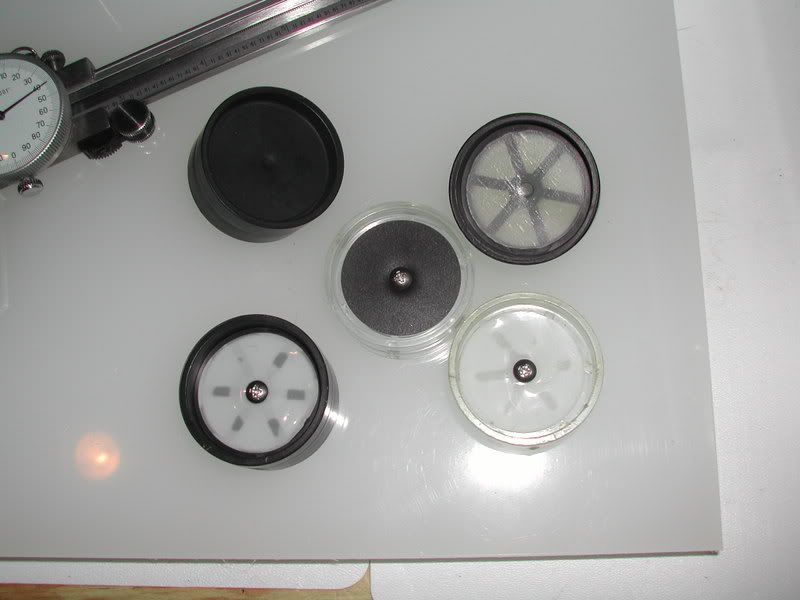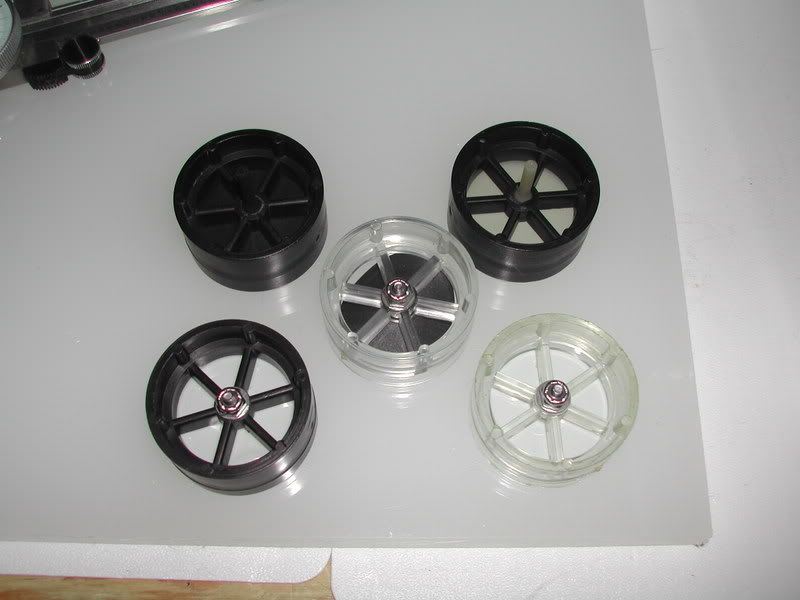Hard Breathing Problem Solved?
Posted: Wed Jun 20, 2007 1:43 pm
Several months ago I had Bryan fit my DA with a Phoenix nozzle. I sent it back to Bryan for adjustment since it breathed hard, especially at depth. He repaired it and the breathing at depth problem was solved, but it still breathed harder than I thought it should - actually my Mares Abyss breathed easier.
I readjusted the IP and the 2nd stage and got it tuned just short of freeflow, but still was not happy with the cracking pressure. I checked it directly from the inlet hose and it seemed fine - about .5" wc, but still it did not breathe easily from the mouthpiece. When diving, I always felt like I had to suck hard to get the air flowing.
Last week I decided to purchase some yellow hoses and a new USN mouthpiece from Sam. When I went to install them last night, I took the existing mouthpiece and breathed through it and found what I think was my problem. The exhaust valve opened easily when I breathed out, but the inlet valve was hard to inhale through (and even "popped" on opening). I switched the valves in the old mouthpiiece and it breathed much easier - inhalation effort was almost nothing.
I made sure to install them in the same configuration in the new mouthpiece and when I got everything assembled, the PRAM breathed like I thought it should - almost pushing air into my mouth on inhalation.
I examined the valve, both the rubber and cage, that seemed to cause the problem, but could find nothing obvious and it works fine on the exhaust side. Maybe the rubber stem that goes through the cage is a little tight on that valve.
All I know is now I want to get back to the quarry and confirm that it is operating the way I think it should - this is going to be a long week and a half.
I readjusted the IP and the 2nd stage and got it tuned just short of freeflow, but still was not happy with the cracking pressure. I checked it directly from the inlet hose and it seemed fine - about .5" wc, but still it did not breathe easily from the mouthpiece. When diving, I always felt like I had to suck hard to get the air flowing.
Last week I decided to purchase some yellow hoses and a new USN mouthpiece from Sam. When I went to install them last night, I took the existing mouthpiece and breathed through it and found what I think was my problem. The exhaust valve opened easily when I breathed out, but the inlet valve was hard to inhale through (and even "popped" on opening). I switched the valves in the old mouthpiiece and it breathed much easier - inhalation effort was almost nothing.
I made sure to install them in the same configuration in the new mouthpiece and when I got everything assembled, the PRAM breathed like I thought it should - almost pushing air into my mouth on inhalation.
I examined the valve, both the rubber and cage, that seemed to cause the problem, but could find nothing obvious and it works fine on the exhaust side. Maybe the rubber stem that goes through the cage is a little tight on that valve.
All I know is now I want to get back to the quarry and confirm that it is operating the way I think it should - this is going to be a long week and a half.

